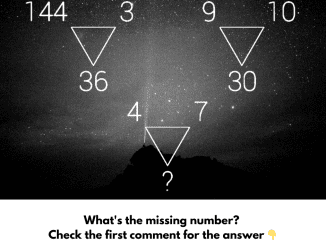In a world where education is constantly evolving, the latest debate surrounding the beloved “Alphabet Song” has stirred up quite a storm on social media. Educators are now revealing how they are revamping the classic tune to better serve young learners, and the reactions from the public have been nothing short of passionate.

People on social media are reacting as educators post a different version of the classic “ABC” song.(Photo by Matt McClain/ The Washington Post via Getty Images)
The traditional “Alphabet Song” has long been a staple in early childhood education, helping generations of children memorize the letters of the alphabet. However, as literacy advocate Jessica Farmer points out, the classic version can actually create confusion for some students.
“The traditional alphabet song has a few issues. When sung quickly, the letters ‘LMNOP’ tend to blend together, leading many young children to incorrectly believe ‘elemenop’ is a single letter. Additionally, the way ‘Y and Z’ is sung can sound like ‘Y N Z,’ which adds an extra, unintended letter to the song.”
To address these issues, educators like Farmer have introduced a revised version of the “Alphabet Song,” one that separates the letters into distinct groups and changes the ending to a more memorable phrase.
“Now I will never forget, I know how to say the alphabet.”
Farmer, a Rainbow Phonics lead professional trainer, believes this updated version will be beneficial for literacy development, as it eliminates the potential for confusion.
The introduction of the “new” alphabet song has sparked a polarizing debate on social media. While some users have expressed their support for the change, citing the potential benefits for early learners, others have been less than enthusiastic about the transformation of this beloved classic.
“As a dyslexic person this … this is a nightmare,” one TikTok user commented.
Another parent simply stated, “I am never teaching my kids that.”
@farmerlovesphonics ⭐️ This might be controversial, BUT this is the best way to sing the alphabet song to avoid letter names being combined…the dreaded “elemenop” or “YNZ”. Practice daily. Point to the letters as you sing it to build letter recognition. #alphabet #abcsong #alphabetsong #letternames #scienceofreading #teachers #parents #newalphabetsong ♬ original sound – Jessica | Learn Phonics
However, not everyone is against the idea. One woman remarked, “I actually like this version so much better,” while another noted, “I love this better, actually. I was so confused as a child [about] what we were saying at ‘LMNOP’ … English is my 2nd language too.”
Despite the mixed reactions, Farmer remains optimistic about the potential impact of the revised alphabet song. She believes that while the changes may not seem immediately impactful, the goal is to make adjustments that will ultimately improve literacy rates across the country, starting in early childhood.
“While the impact may not seem immediate, the goal is to make changes that will ultimately improve literacy rates across the country, starting in early childhood.”
As the debate over the “new” alphabet song continues to unfold, it’s clear that the education community is committed to finding ways to better serve young learners. Whether the revised version gains widespread acceptance or the traditional song remains the standard, the underlying focus remains on fostering a love of learning and improving literacy outcomes for children.
In the ever-evolving landscape of education, the “Alphabet Song” controversy serves as a reminder that even the most familiar and cherished traditions are not immune to change. As educators strive to create more effective learning experiences, the reactions from the public will undoubtedly continue to shape the future of this iconic tune. One thing is certain: the debate surrounding the “new” alphabet song is far from over, and the implications for early childhood literacy remain a topic of intense discussion.


